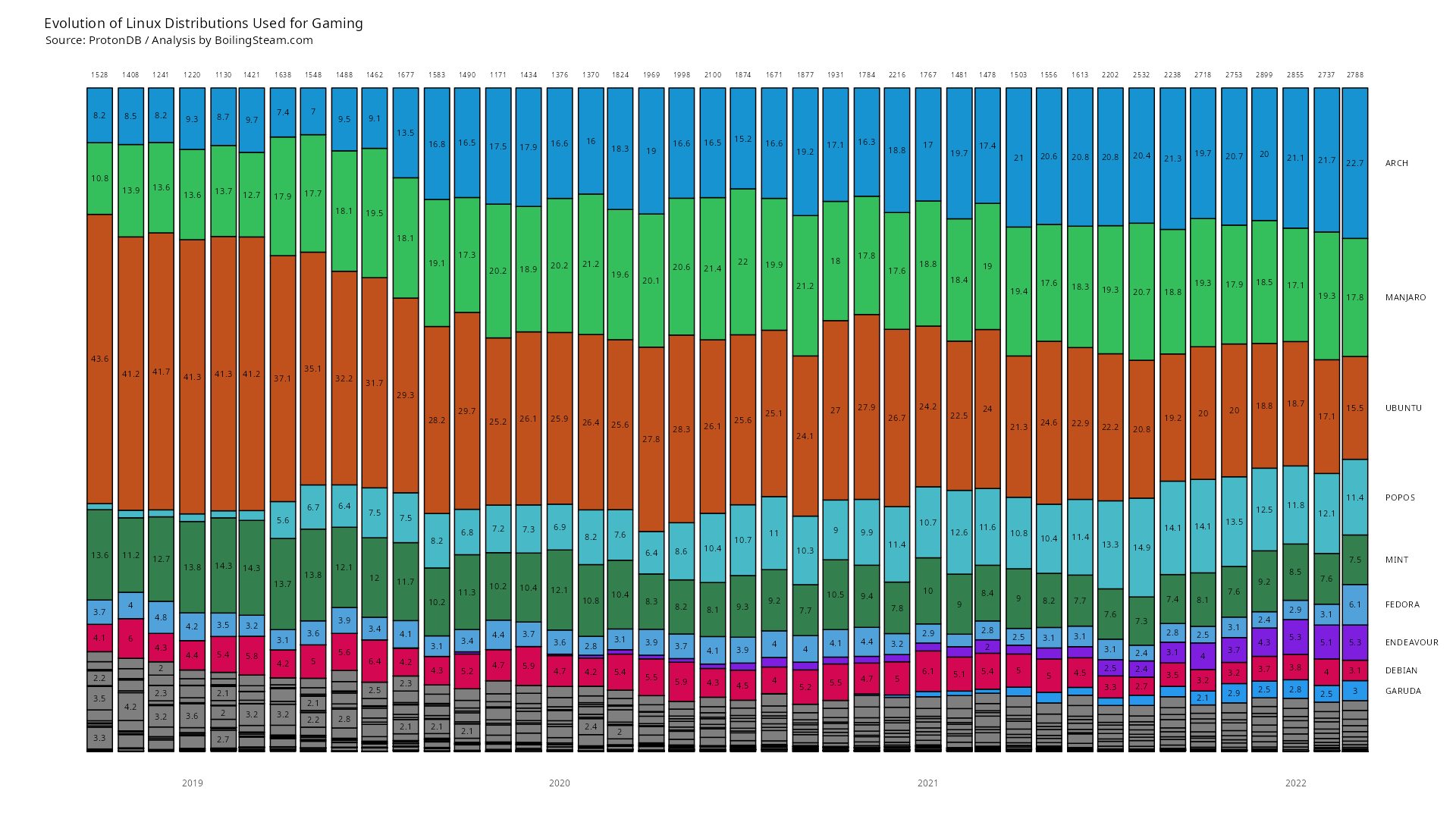Ubuntu Continues Falling Like a Rock as a Gaming Distro
Using ProtonDB data to check gaming distro trends is a fun exercise and and here’s a quick update following the most recent data available there. And what do we find out? Well, Ubuntu’s share is STILL going down.

The usual caveats apply. This is probably not representative of the market at large, blah blah blah, but this is a very good indicator of what’s happening in a very active slice of Linux gamers heavily involved in gaming activities.
Looking closely at the numbers, we find that:
- Ubuntu’s share in this dataset has shrunk by almost 3 times (from almost 45% to about 15% now)
- Arch is still growing steadily, albeit slowly.
- Fedora has been getting some renewed interest. Funny thing about Fedora is that I keep hearing a lot about it, even from people who were not Fedora users before but decided to try and switch to it recently.
It’s no secret that Ubuntu has lost its position as a default distro for Gaming, a position that it used to have in the early days of Steam for Linux. Ubuntu has failed to innovate on the desktop after many years of successfully experimenting from one version to the next.
Ubuntu has also pushed for installing apps using their snap solution, often done without the user knowing that specific packages were installed this way rather than through the regular apt package manager mechanism. While they are still many derivatives based on Ubuntu, it’s not the only standard anymore and it has clearly lost its leadership. Gaming require fast moving updates and upgrades and a rolling distro is best suited for that, which is why the ProtonDB data shows that the Arch block (Arch Linux + Manjaro + other Arch derivatives) accounts for almost half of the distro share here, where they used to be at most 20% a few years back.
The tide has certainly turned when Valve decided to choose Arch for the basis of their new SteamOS iteration for the Steam Deck.
Ubuntu is still a reference in the workstation/desktop space. A lot of software out there is still created or tested with Ubuntu as a target. But will Ubuntu ever regain ground in the gaming space? It’s hard to see them change priorities anytime soon, and even if they did, they have quite a lot of competition these days, and one would be hard pressed to find a good reason to stick or switch back to Ubuntu. PopOS is already a kind of “more user friendly” version of Ubuntu, and Mint acts as the “more polished little one”. Well, they are not that little anymore, since PopOS and Mint combined are now bigger than Ubuntu itself according to this dataset!
And let’s not forget that there’s a whole new wave of novel distro designs in the past few years, focusing on making systems more robust with proper change tracking, versionning, and usually immutable file systems:
- NixOS
- GNU Guix
- Fedora Silverblue
- OpenSUSE MicroOS
Those are great experiments to build the future of Linux distros and we can clearly see that Ubuntu has missed that train while some other popular distros are definitely placing their bets there.
If you intend to stick to Ubuntu for a while, but don’t like where things are going, an ex-Canonical employee, Alan Pope, has written a set of scripts to help get rid of Snap altogether within Ubuntu, and transition to flatpak instead. You can check out how to do so on his Unsnap Github project page:
